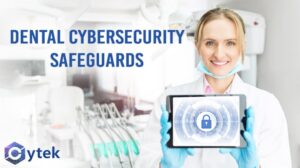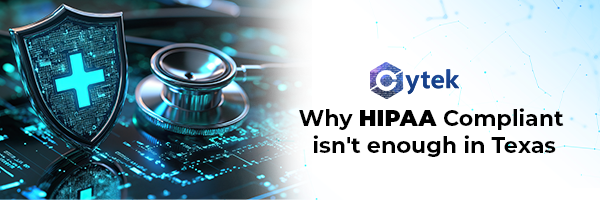Dental Cybersecurity Safeguards

Why Safeguards are vital for a Dental Practice?
For managing your dental practice HIPAA compliance is a vital part. Compliance protects your patient’s information and also the reputation of your practice. As cyberattacks are rapidly increasing in the health care sector your dental practice need to stay compliant. Dental Cybersecurity Safeguards and cybersecurity experts will help your practice to maintain compliance with ease.
Does my practice needs Dental Cybersecurity Safeguards?
A data breach is a great concern for the health care sector. It doesn’t mean that your practice complies just because your practice hasn’t experienced any data breach. Recent studies show that data breaches are very common nowadays. The fact is that data breaches can happen to any practice. The reputation and compliance of your practice matter. It is important to safeguard your patient’s data. HIPAA violation can cause data breaches and can also lead to penalties. It can also damage the reputation of your practice. HIPAA compliance not only helps to prevent data breaches, but also helps to detect, respond and mitigate if any data breach occurs.
HIPAA privacy rule ensures confidentiality and integrity of all electronic protected health information (ePHI). Any protected health information that is stored, transmitted, or received in any electronic format or media is known as ePHI. Every practice must implement three types of Safeguards to protect ePHI under the security rules: Administrative Safeguards, Physical Safeguards, and Technical Safeguards.
Dental Cybersecurity Safeguards are designed to help dental practices to respond swiftly to breaches. To respond to emergencies, and protect data every dental practice is required to implement safeguards that help them comply with HIPAA. If a data breach happens in your practice the faster your dental practice can respond, the quicker and more efficient the recovery.
The Three Dental Cybersecurity Safeguards under the HIPAA Security Rule
Administrative Safeguards: This Security Rule focuses on administrative actions, policies, procedures and maintenance of security measures to protect electronic protected health information. It includes:
- Training employees on how to handle ePHI
- A contingency plan on how your dental practice will respond to emergencies
- Identifying employees who will have access to ePHI
- And internal audits for identifying potential violations
Physical Safeguards: This security rule focus on controlling physical access to protect against inappropriate access to protected data. It includes:
- Monitoring and controlling equipment containing health information
- Limiting access to health information
- Requiring visitor sign-in and escorts
- Controls the hardware and software in the network
Technical Safeguards: This security rule focus on policy and procedures to protect electronic protected health information and control access to it. It includes:
- Protecting the systems from intrusion
- Data encryption
- User authentication
- Risk analysis and risk management programs.
HIPAA compliance is not a one-time deal. It’s an ongoing process. By staying compliant you ensure the security of your practice. Maintain compliance with confidence and ease with Cytek cybersecurity experts and Dental Cybersecurity Safeguards. Contact us to find out how we can help to enhance security for your practice.

 ">
">
 ">
">